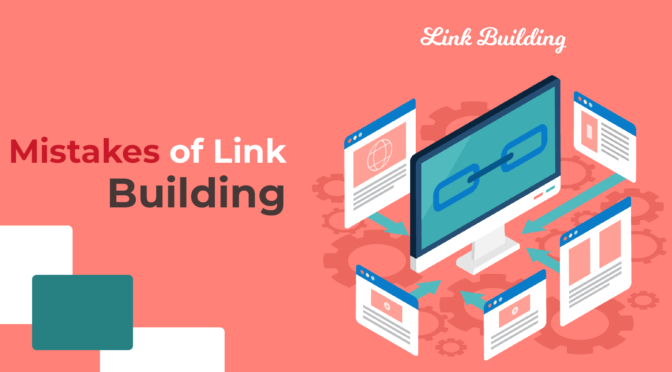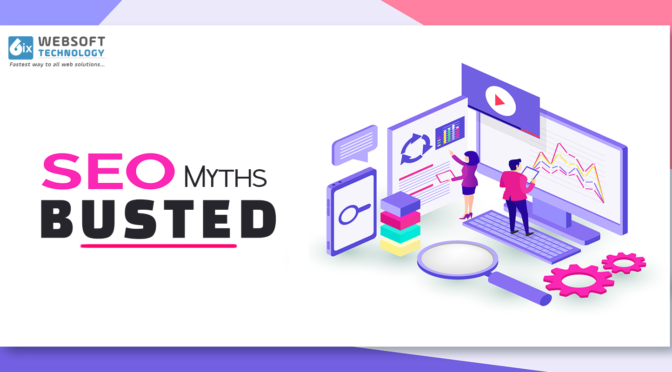Google doesn’t despise your site, AdWords don’t affect SEO and ‘freshness’ and watchwords are not as significant as you might suspect. Each industry has its fantasies thus does the SEO world. Google attempts from time to time to reveal insight into normal misguided judgments. In any case, there is just so a lot of a little group of effort experts can do to bring issues to light at worldwide meetings, so here are the 10 most SEO Myths, busted by previous long-term Google Search worker and SEO master.
Myth #1 Busted: SEO is a level playing field
In principle – or so it goes – SEO is a “reasonable challenge,” where each site stands a similar opportunity to go after inquiries. But it isn’t. It hasn’t been for quite a while and it never will be “reasonable” again. Like whatever other market where two organizations are contending, no offer is actually the equivalent. On account of SEO, various sites show diverse on-and off-page SEO signals. Thusly, they rank in an unexpected way. These SEO signals incorporate however are not restricted to page execution, specialized arrangement, SERP land and backlink profile to give some examples that can be estimated and improved. This is the thing that Search Engine Optimization is about. However, it is never starting over from the beginning for everybody.
The facts confirm that Google awards shiny new spaces a Google Honeymoon Period. This is a concise minute during which the site positions well, in spite of not having gathered adequate SEO flag yet. Destinations that will in general do well during this effortlessness period stand a decent opportunity to exceed expectations for important focused inquiries reliably. Most anyway drop once Google has assembled adequate information “affirming” the new site’s actual positioning. While the Honeymoon Period gives new sites some assistance at its dispatch, SEO is certainly not a level playing field rivalry.
Myth #2 Busted: SEO is a one-time venture
At industry gatherings, participants hear individuals state that it is critical to “hit the nail on the head” to rank. This is valid, yet not so much precise. Like some other organization interest in resources, after some time that very same speculation will unavoidably wear off. Best practices of the past become obsolete or out and out outdated. To stay aware of the challenge, particularly in the more rewarding specialties, SEO should be viewed as a progressing exertion with arranged, occasional spurts of expanded action booked early. A few factors, for example, scrap portrayal, straightforwardly affecting client experience and flag must be ceaselessly observed and improved. The equivalent applies to page execution, which again is straightforwardly answerable for how clients experience the site. Different factors, for example, overseeing backlink liabilities, may just require spot checks and be a piece of a yearly on-and off-page SEO review.
Myth #3 Busted: SEO is backlinks
Connections are crucial to the web as we probably am aware it. Without joins, most web indexes would not have the option to discover and creep new substance. For Google, backlinks likewise speak to a positioning sign. Be that as it may, as opposed to famous observation, backlinks may hurt site rankings. By manual spam activities (otherwise known as Google Penalties), there are additionally Google Algorithms, for example, Penguin entrusted with distinguishing sites overwhelmingly connected from low-quality sites. Google’s nonstop mantra is that connections must be founded on merit, as opposed to paid or fabricating plans. Locales streamlined with a negligence for Google Webmaster Guidelines will probably be in the line of sight. Be that as it may, SEO isn’t simply about PageRank passing backlinks.
Backlinks ought to be effectively sought after, in any case, not for an illusionary PageRank gain, yet to develop changes, which is the main role for improving sites and doesn’t represent a hazard that the site might be punished and vanish from SERPs inside and out. Google leaves an entryway open for locales that had been in infringement with Google connecting arrangements sooner or later by giving the Disavow Tool, which enables a site to disassociate from bad backlinks.
Myth #4 Busted: SEO is client signals
It isn’t right to accept client signals are insignificant. They are a pertinent SEO factor. Google’s whole plan of action lays on its client unwaveringness. Google quantifies its client satisfaction and uses the information so as to improve its item. In that sense, client flag genuinely are a factor. In any case, Google doesn’t share the information they use, not even with the checked Google Search Console site administrator. In this way we’re left with GSC impressions and active visitor clicking percentage as the main affirmed markers in regards to client view of the site and their conduct. While the mix of high impression volumes and low CTRs typically demonstrates that client sign can be improved, these constrained bits of knowledge are just a single piece on a lot greater SEO picture. How and on the off chance that they can be improved depends fundamentally on the site’s one of a kind selling suggestion, which is by a long shot increasingly significant.
Myth #5 Busted: Google abhors my site
The individual ill will protest is as continuous as it is nonsensical. Google has never exhibited an aversion of a site and it would look bad to work a worldwide business dependent on close to home ill will. The case that a site doesn’t rank in light of a Google quarrel is effectively disproved with a SEO review that will probably reveal all the specialized, content, on-and off-page weaknesses. There are Google punishments, indirectly alluded to as Manual Spam Actions; be that as it may, these are not activated by close to home grudges and can be lifted by presenting a convincing Reconsideration Request. In the event that anything, Google keeps on showing lack of interest towards sites. This incorporates its own properties, which on numerous occasions had been punished for various offenses.
Myth #6 Busted: Google AdWords affects SEO
Notwithstanding a long time of instructive work, one of the most widely recognized SEO fantasies remains the thought that Google AdWords positively affects site rankings. Natural, common search is furiously autonomous of paid search. Notwithstanding the monetary allowance focused on AdWords battles, Google AdWords isn’t a SEO signal.
Myth #7 Busted: Keywords are critical
In their early stages web search tools depended intensely on the thickness of watchwords on points of arrival to associate their significance to inquiries. Quick forward 20 years and key phrases have lost quite a bit of their SEO significance. Google has consistently been overlooking meta key phrases, and keeping in mind that they creep and file fallen and behind tabs content, they tend not to rank destinations for content, including watchwords not unmistakable to clients. Watchwords in URLs are not being utilized for positioning purposes either. Key phrases are probably not going to have any alluring effect on CTR, particularly in examination with rich scraps breadcrumbs, which do enable clients to explore. The hours of tallying catchphrases on pages and endeavoring to distinguish a passing perfect proportion are a relic of past times. Content, which can be spoken to by information as much as by composed words, is significant for the setting of the site, in any case, watchwords are not applicable.
Myth #8 Busted: SEO is ‘freshness’
Truly, Google is by all accounts attached to content freshness. Be that as it may, just when freshness is a factor to client purpose. For locales working in quick paced news, vertical freshness can convert into an upper hand. That incorporates a little determination of real news outlets like papers, magazines or gateways. For the mind larger part of sites, freshness isn’t significant as a SEO factor and no measure of changing distributing dates on old articles will persuade Google it’s new substance. Thusly, other then for news destinations, freshness isn’t significant.
Myth #9 Busted: Social sign are a SEO factor
Remarks, preferences, votes and social media engagement – including connections from social networking channels like Facebook or Twitter – are in opposition to prevalent hypotheses not adding to SEO as a positioning variable. Google isn’t considering factors related to online marketing for valid justifications, above all the quality of information accessible is divided and problematic. Be that as it may, there are valid justifications to consider online marketing effort as an essential piece of brand building. And keeping in mind that social media engagement does nothing to help rankings legitimately, it has an extraordinary long-haul impact on factors that do make a difference in SEO activities. Brand sites that try to become pioneers in their vertical with social media engagement methodology have an unmistakable favorable position while competing with different sites for client consideration in Google SERPs.
Myth #10 Busted: SEO is Fairylike Charmed Activity
Ultimately, site design improvement multifaceted nature is once in a while diminished to articulations demonstrating SEO is both a workmanship and science that makes it hard to get it. Depicting SEO as too complex to even think about explaining isn’t advantageous, not to mention exact. Indeed, SEO is information driven. Much of the time the measures of information required to address an issue can be colossal. Simultaneously, there are a large number of signs, both on-and off-page that can struggle with one another. Since SEO is so information driven, even complex issues can be separated into little, sensible information pieces to be examined and clarified. On the possibility of ransacking the SEO business of a portion of its enchantment, there’s no Voodoo included. By the day’s end, pretty much every SEO sign can be separated to KPIs that can be clarified.
What is your most loved SEO fantasy or normal misinterpretation? Get yourself armed with right set of information that will make all the difference in your choices.









